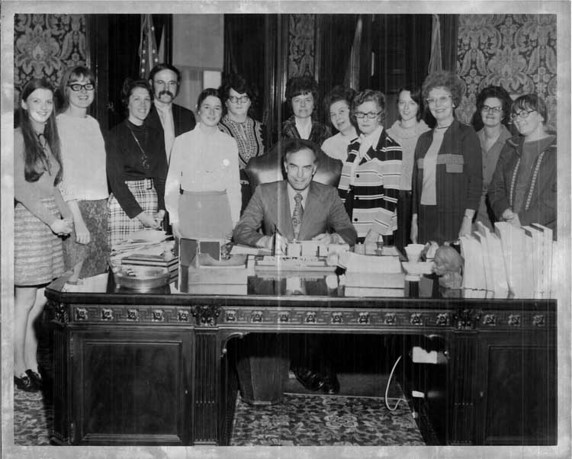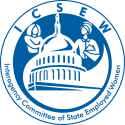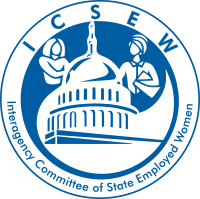Celebrate Her-Story During Women’s History Month

By Rachel Friederich, ICSEW Communications Chair
March is Women’s History Month. The month is set aside to honor women’s contributions in American history.
In Washington state, women have been making history. In 1910, women received the right to vote. Washington was only the fifth state to do so in the US. In 1924, Seattle’s Bertha K. Landes was the first female mayor of a major American city. From 1993 to 2004 Washington led the nation in the percentage of women elected to a state legislature (40.8%). (Source: National Women’s Political Caucus of Washington)
In the last couple of years, Washington’s Supreme Court became one of the most diverse in the nation, with the appointments of Judge Raquel Montoya-Lewis as first Native woman and Helen Whitener was the first Black woman to sit on the state’s highest court. Women have more representation in our legislature. T’wina Nobles was the first Black senator elected in Washington for more than a decade—and only the second black woman to serve in the chamber. The House also gained three new Black women: Jamila Taylor, April Berd and Kirsten Harris-Talley. Voters also chose Marilyn Strickland as its first Black member of Congress. In another first, Laurie Jinkins became the state’s first woman and out lesbian Speaker of the House.
As the pandemic made in-person event uncertain, or at least scaled down over the past couple of years, more organizations have made exhibits, films, discussions and learning opportunities online. Here are a few resources and virtual events to check out during Women’s History Month.
Washington State
- Washington Women’s History Consortium and ICSEW: The Washington Women’s History Consortium has created a central database of digitized images of primary resources related to Washington women’s history. It has a treasure trove of things related to Washington state women’s history, including digitized archives of documents related to the women’s suffrage movement in Washington state, oral histories and more.
Connection to ICSEW
There’s also a collection of materials on the Governor’s Commission on the Status of Women. The Commission on the Status of Women was a precursor to what the ICSEW is today. In 1963, gov. Rossellini asked to investigate and report on the legal, social, economic and political status of women in Washington.
The Washington Women’s History Consortium has a collection on the Governor’s Commission on the status of Women that had records of correspondence, committee records, legislation, minutes and reports. It also has an archive on ICSEW meetings and minutes. (Related: Register for ICSEW’s March 2022 Meeting)
The Governor’s Commission on the Status of Women was in response to then President Kennedy’s Commission on the Status of Women to address concerns about women’s status who were concerned about women's status while avoiding alienating the Kennedy administration's labor base through support of the Equal Rights Amendment. At the time, labor, which had been important to Kennedy's victory, opposed ratification of the Equal Rights Amendment believing instead that women required protective legislation—and fearing that the amendment would prevent this.
When PCSW began in 1961, Congress began considering 412 pieces of legislation related to women's status. The PCSW's very existence gave the federal government an incentive to again consider women's rights and roles as being a serious issue worthy of political debate and public policy-making. The President's Commission on the Status of Women (PCSW) was established to advise the President of the United States on issues concerning the status of women. It was created by John F. Kennedy's Executive Order 10980 signed December 14, 1961In 1975 it became the National Association of Commissions for Women.
(Read more about the Presidential Commission on the Status of Women)
- Washington State Arts Commission commemorates Women’s History month has a permanent collection used to highlight achievements in history and achievements in contemporary society. It ha a virtual exhibit with more than 2,200 pieces of art by local women artists.
- National Women’s Political Caucus of Washington: Contains a timeline of history of the feminist movement in Washington state, beginning in 1854.
- Washington State Historical Society’s page on the 100th anniversary of the women’s suffrage movement. Though the centennial was last year, and all of its in-person events were cancelled, the site has virtual exhibitions, curricula, and links to videos.
- Washington State Women’s Commission: Its mission is to improve the life of every woman by ensuring equitable opportunities and removing systemic barriers through engagement, advocacy, public policy, while being inclusive of diverse populations. The organization has many events, and which can be attend virtually on women’s issues.
About Women's History Month (National)
Women’s History Month began as a local celebration in Santa Rosa, California. The Education Task Force of the Sonoma County (California) Commission on the Status of Women planned and executed a “Women’s History Week” celebration in 1978. The organizers selected the week of March 8 to correspond with International Women’s Day. The movement spread across the country as other communities initiated their own Women’s History Week celebrations the following year.
In 1980, a consortium of women’s groups and historians—led by the National Women’s History Project (now the National Women's History Alliance)—successfully lobbied for national recognition. In February 1980, President Jimmy Carter issued the first Presidential Proclamation declaring the Week of March 8th 1980 as National Women’s History Week. Read more About Women’s History Month
National Events & Resocurces
National Women’s History Museum: Videos and biographies of influential women in American history, including Stacey Abrams, Dolores Huerta, and Harriet Tubman. There’s also links to interactive virtual events including readings and storytelling by women authors and guest speakers.
The Library of Congress, National Archives and Records Administration, National Endowment for the Humanities, National Gallery of Art, National Parks Service Smithsonian Institution and United States Holocaust Memorial Museum join in commemorating and celebrating the vital role of women in American History. Below are a couple events, and a complete list can be found here: https://womenshistorymonth.gov/
Girlhood (It’s complicated)Exhibit features Videos, stories of notable women, and photos of artifacts. Itcommemorates the anniversary of woman suffrage by exploring the concept of girlhood in the United States, but also how girls changed history in five areas: politics, education, work, health, and fashion. We argue that girlhood has an unexpected and complicated history and that girls, like suffragists, used their voices to make a difference.
Women’s Film and Video: Join us on the first Thursday of each month in 2021 to celebrate the breadth of women-made films and videos from across Smithsonian collections. These special screenings of rarely seen short-form treasures will be followed by live conversations between the artists or filmmakers and Smithsonian curators. Each screening will include time for audience questions. A recording of the event will be available for the remainder of each month.

